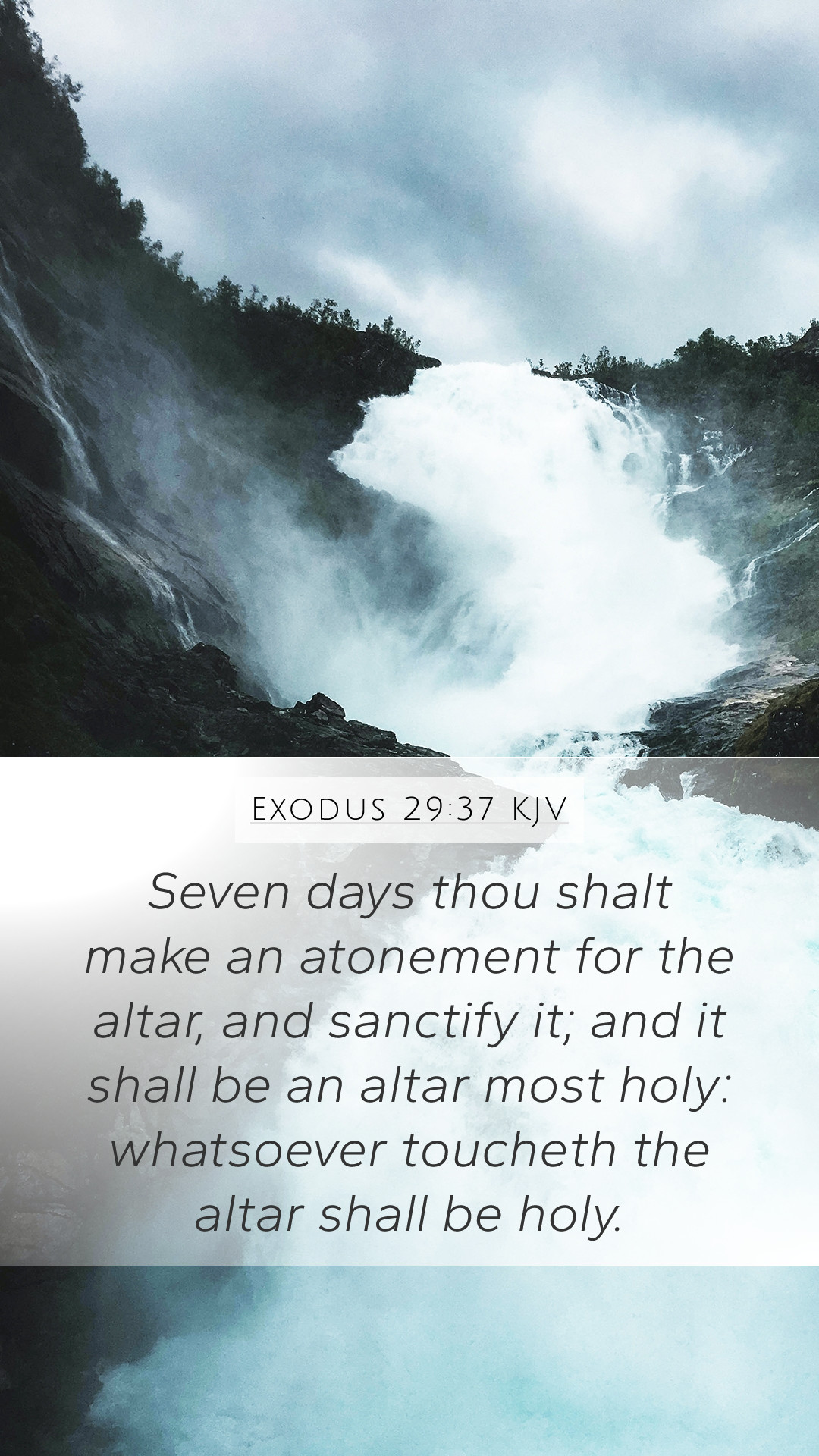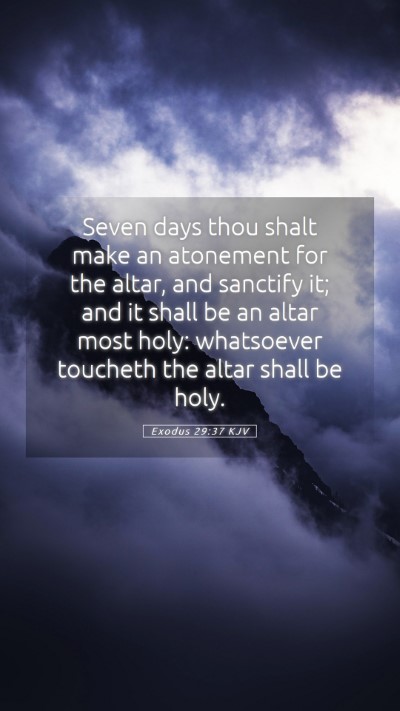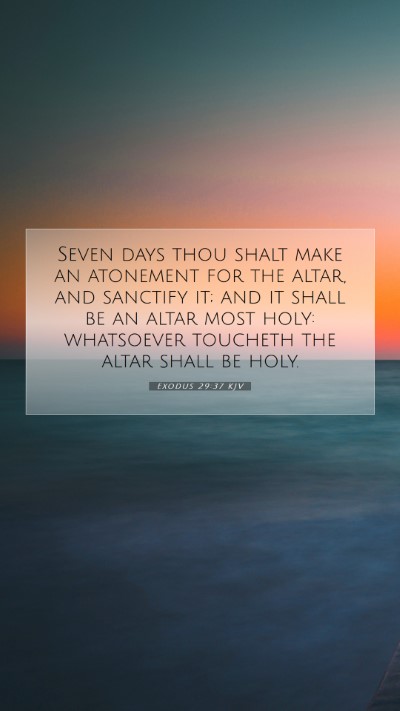Bible Verse Meaning: Exodus 29:37
Verse: “Seven days thou shalt make an atonement for the altar, and sanctify it; and it shall be an altar most holy: whatsoever toucheth the altar shall be holy.”
This verse is paramount for understanding the significance of the consecration of the altar in the Tabernacle. Below is a comprehensive analysis combining insights from public domain commentaries, specifically those by Matthew Henry, Albert Barnes, and Adam Clarke.
Overview of Exodus 29:37
The context of Exodus 29 revolves around the instructions given by God to Moses regarding the consecration of the priests and the altar of burnt offerings. Exodus 29:37 specifically emphasizes the ritual of atonement that must take place over a period of seven days to bring holiness to the altar.
Insights from Commentaries
-
Matthew Henry:
Henry elaborates on the concept that the altar is a means through which God communes with His people. The seven-day period signifies completeness and perfection in the sanctification process. The altar being “most holy” underlines its importance in worship and sacrifice. Henry emphasizes that anything touching the altar becomes holy, illustrating the transformative power of God’s presence.
-
Albert Barnes:
Barnes points out the significance of atonement made for the altar, indicating that it serves as a type of Christ and foreshadows the ultimate sacrifice made for sin. He highlights the need for a complete cleansing and dedication to God, bringing forth the idea that purity is necessary for effective worship. The instructions given here reflect God’s desire to be approached in holiness.
-
Adam Clarke:
Clarke explains the ceremonial aspects surrounding the altar and the necessity of atonement. He points out that the seven-day period equates to a week of preparation before entering into God's presence, which also symbolizes a renewed state of being. Clarke related this to the spiritual preparation that believers must engage in for approaching the Holy God.
Theological Significance
Exodus 29:37 holds profound theological implications, particularly in the area of sanctification. Atonement signifies restoration and reconciliation between God and His people. The verse teaches us the importance of holiness and sets a precedent for the rituals of worship in both the Old and New Testaments.
Symbolism and Prophetic Insights
The symbolism of the altar in Exodus 29:37 can be connected to Jesus Christ, the ultimate altar and sacrifice for humanity. This verse serves as an Old Testament prophecy, pointing toward the need for a perfect sacrifice for atonement and the establishment of a new covenant through Christ.
Cross References
- Leviticus 16:15-16: Discusses the ritual of atonement and the significance of purity in offerings.
- Hebrews 9:22: Points out that without the shedding of blood, there is no remission of sins, linking back to the sacrificial system.
- Romans 12:1: Encourages believers to present their bodies as living sacrifices, holy and acceptable to God, mirroring the principles found in Exodus.
Application of Exodus 29:37 to Daily Life
In applying this verse to daily life, believers are reminded of the importance of approaching God with a pure heart and a sanctified life. Just as the altar was set apart for God’s use, so should our lives reflect His holiness. This biblical exegesis encourages individuals to engage in regular self-examination and spiritual renewal.
Conclusion
Exodus 29:37 provides a significant look into the themes of atonement, sanctification, and holiness that resonate throughout the Bible. Understanding Scripture in this manner not only informs one’s theological perspective but also inspires personal application in the life of faith. The insights gleaned from the commentaries enhance our understanding of this scripture and its relevance to believers today.


